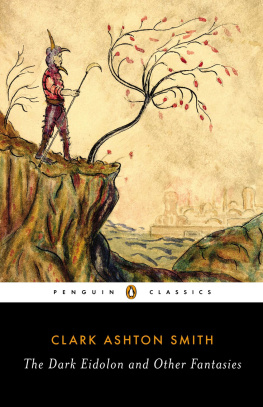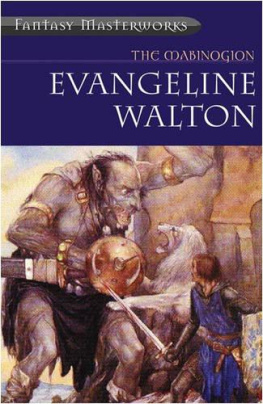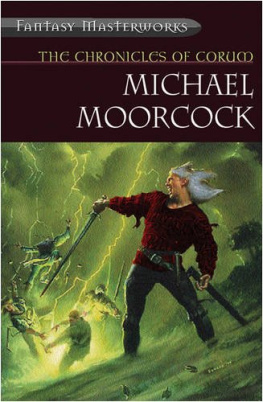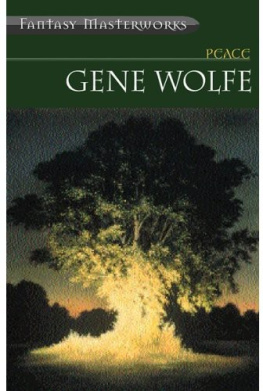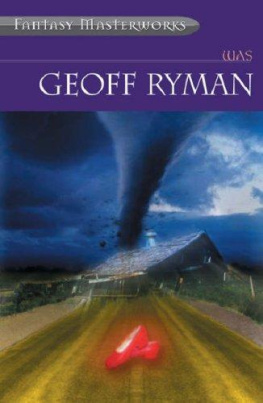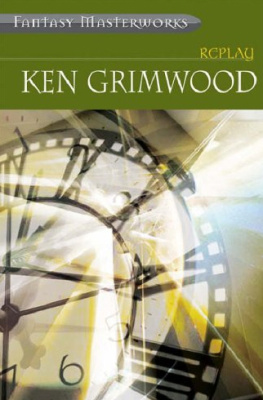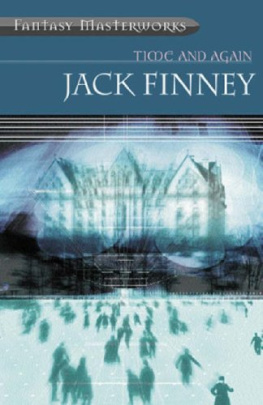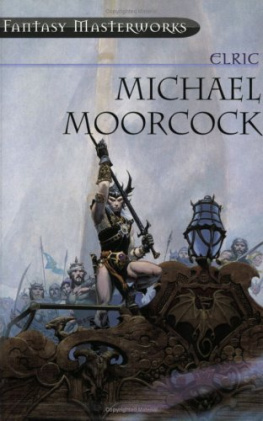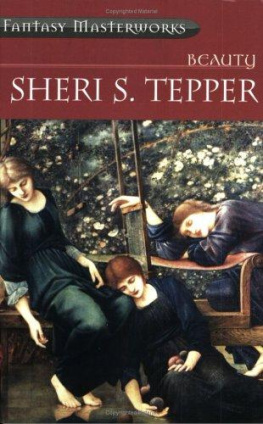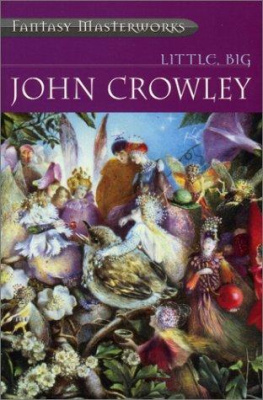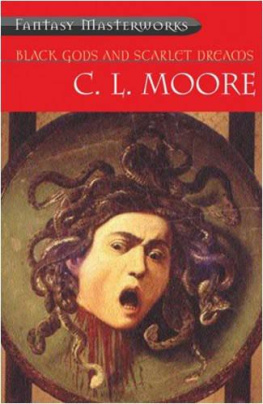Clark Ashton Smith - Emperor of Dreams (Fantasy Masterworks 26)
Here you can read online Clark Ashton Smith - Emperor of Dreams (Fantasy Masterworks 26) full text of the book (entire story) in english for free. Download pdf and epub, get meaning, cover and reviews about this ebook. year: 2002, publisher: Gollancz Paperbacks, genre: Art. Description of the work, (preface) as well as reviews are available. Best literature library LitArk.com created for fans of good reading and offers a wide selection of genres:
Romance novel
Science fiction
Adventure
Detective
Science
History
Home and family
Prose
Art
Politics
Computer
Non-fiction
Religion
Business
Children
Humor
Choose a favorite category and find really read worthwhile books. Enjoy immersion in the world of imagination, feel the emotions of the characters or learn something new for yourself, make an fascinating discovery.

- Book:Emperor of Dreams (Fantasy Masterworks 26)
- Author:
- Publisher:Gollancz Paperbacks
- Genre:
- Year:2002
- Rating:3 / 5
- Favourites:Add to favourites
- Your mark:
- 60
- 1
- 2
- 3
- 4
- 5
Emperor of Dreams (Fantasy Masterworks 26): summary, description and annotation
We offer to read an annotation, description, summary or preface (depends on what the author of the book "Emperor of Dreams (Fantasy Masterworks 26)" wrote himself). If you haven't found the necessary information about the book — write in the comments, we will try to find it.
Emperor of Dreams (Fantasy Masterworks 26) — read online for free the complete book (whole text) full work
Below is the text of the book, divided by pages. System saving the place of the last page read, allows you to conveniently read the book "Emperor of Dreams (Fantasy Masterworks 26)" online for free, without having to search again every time where you left off. Put a bookmark, and you can go to the page where you finished reading at any time.
Font size:
Interval:
Bookmark:
We have been told that literature dealing with the imaginative and fantastic is out of favour among the Intellectuals, whoever they are. Only the Real, whatever that is or may be, is admissible for treatment; and writers must confine themselves to themes well within the range of statisticians, lightning calculators, Freud and Kraft-Ebbing, the Hearst and McFadden publications, NRA, and mail-order catalogues. Chimeras are no longer the mode, the infinite has been abolished; mystery is obsolete, and sphinx and medusa are toys for children. The weird and the unearthly are outlawed, and all mundane impossibilities (which, it may be, are the commonplaces of the Pleinds) have been banished to some limbo of literalistic derision. One may write of horses and hippopotomi but not of hippogriffs; of biographers, but not of ghouls; of slum-harlots or the hetairae of Nob Hill but not of succubi. In short, all pipe-dreams, all fantasies not authorized by Freudianism, by sociology, and the five senses, are due for the critical horse-laugh, when, through ignorance, effrontery, or preference, they find a place in the subject matter of some author unlucky enough to have been born into the age of Jeffers, Hemingway, and Joyce.
Let us examine these amazing dicta, fathered, as they must be, by people whose literal-mindedness can be surpassed only by that of their "four-footed betters." Surely it is axiomatic that in thought or art we deal not with things themselves, but with concepts of things. One may write, like Villon, of Muelde Meg and the Fair Helm-Maker; or, like Sterling, evoke Lilith and the blue-eyed vampire: in either case, only figments of the poet's mind are presented. It is for the creator, not the critic, to choose that image or symbol which suits him best. People who cannot endure anything with a tinge of trope or fantasy, should confine their reading to the census-returns. There, if anywhere, they will find themselves on safe ground.
To touch on other considerations: why this thirst for literalism, for nothing but direct anthropological data, which would proscribe the infinitudes of imagination, would bar all that can lift us, even in thought, above the interests of the individual or the species? Does it not imply a cosmic provincialism, an overweening racial egomania?
Indeed, if all things fantastic or impossible are to be barred as literary subject-matter, where is one to draw the line? Many thinkers who lived before Freud, and some who live contemporaneously with him, have maintained that the world itself is a fantasy; or, in De Casseres' phrase, a "superstition of the senses." Gautier has pointed out that we live only by illusion, by a process of seeing ourselves and all things as they are not. The animals alone, being without imagination, have no escape from reality. From paretic to psychoanalyst, from poet to rag-picker, we are all in flight from the real. Truth is what we desire it to be, and the facts of life are a masquerade in which we imagine that we have identified the maskers. The highest intellects have always delighted in poetic fancy and philosophic paradox, knowing well that the universe itself is multiform fantasy and paradox, and that everything perceived or conceived as actuality is merely one phase of that which has or may have innumerable aspects. In this phantom whirl of the infinite, among these veils of Maya that are sevenfold behind sevenfold, nothing is too absurd, too lovely, or dreadful to be impossible.
Clark Ashton Smith
Song of the Necromancer
I will repeat a subtle rune-
And thronging suns of Otherwhere
Shall blaze upon the blinded air,
And spectres terrible and fair
Shall wake the riven world at noon.
The star that was mine empery
In dust upon unwinnowed skies:
But primal dreams have made me wise,
And soon the shattered years shall rise
To my remembered sorcery.
To mantic mutterings, brief and low,
My palaces shall lift amain,
My bowers bloom; I will regain
The lips whereon my lips have lain
In rose-red twilights long ago.
Before my murmured exorcism
The world, a wispy wraith, shall flee:
A stranger earth, a weirder sea,
People with shapes of Fery,
Shall swell upon the waste abysm.
The pantheons of darkened stars
Shall file athwart the crocus dawn;
Goddess and Gorgon, Lar and faun,
Shall tread the amaranthine lawn,
And giants fight their thunderous wars.
Like graven mountains of basalt,
Dark idols of my demons there
Shall tower through bright zones of air,
Fronting the sun with level stare;
And hell shall pave my deepest vault.
Phantom and fiend and sorceror
Shall serve me...till my term shall pass,
And I become no more, alas,
Than a frail shadow on the glass
Before some latter conjurer.
The sand of the desert of Yondo is not as the sand of other deserts; for Yondo lies nearest of all to the world's rim; and strange winds, blowing from a pit no astronomer may hope to fathom, have sown its ruinous fields with the gray dust of corroding planets, the black ashes of extinguished suns. The dark, orblike mountains which rise from its wrinkled and pitted plain are not all its own, for some are fallen asteroids half-buried in that abysmal sand. Things have crept in from nether space, whose incursion is forbid by the gods of all proper and well-ordered lands; but there are no such gods in Yondo, where live the hoary genii of stars abolished and decrepit demons left homeless by the destruction of antiquated hells.
It was noon of a vernal day when I came forth from that interminable cactus-forest in which the Inquisitors of Ong had left me, and saw at my feet the gray beginnings of Yondo. I repeat, it was noon of a vernal day; but in that fantastic wood I had found no token or memory of a spring; and the swollen, fulvous, dying and half-rotten growths through which I had pushed my way, were like no other cacti, but bore shapes of abomination scarcely to be described. The very air was heavy with stagnant odors of decay; and leprous lichens mottled the black soil and russet vegetation with increasing frequency. Pale-green vipers lifted their heads from prostrate cactus-boles and watched me with eyes of bright ochre that had no lids or pupils. These things had disquieted me for hours past; and I did not like the monstrous fungi, with hueless stems and nodding heads of poisonous mauve, which grew from the sodden lips of fetid tarns; and the sinister ripples spreading and fading on the yellow water at my approach were not reassuring to one whose nerves were still taut from unmentionable tortures. Then, when even the blotched and sickly cacti became more sparse and stunted, and rills of ashen sand crept in among them, I began to suspect how great was the hatred my heresy had aroused in the priests of Ong and to guess the ultimate malignancy of their vengeance.
I will not detail the indiscretions which had led me, a careless stranger from far-off lands, into the power of those dreadful magicians and mysteriarchs who serve the lion-headed Ong. These indiscretions, and the particulars of my arrest, are painful to remember; and least of all do I like to remember the racks of dragon-gut strewn with powdered adamant, on which men are stretched naked; or that unlit room with six-inch windows near the sill, where bloated corpse worms crawled in by hundreds from a neighboring catacomb. Sufficient to say that, after expending the resources of their frightful fantasy, my inquisitors had borne me blindfolded on camel-back for incomputable hours, to leave me at morning twilight in that sinister forest. I was free, they told me, to go whither I would; and in token of the clemency of Ong, they gave me a loaf of coarse bread and a leathern bottle of rank water by way of provision. It was at noon of the same day that I came to the desert of Yondo.
Font size:
Interval:
Bookmark:
Similar books «Emperor of Dreams (Fantasy Masterworks 26)»
Look at similar books to Emperor of Dreams (Fantasy Masterworks 26). We have selected literature similar in name and meaning in the hope of providing readers with more options to find new, interesting, not yet read works.
Discussion, reviews of the book Emperor of Dreams (Fantasy Masterworks 26) and just readers' own opinions. Leave your comments, write what you think about the work, its meaning or the main characters. Specify what exactly you liked and what you didn't like, and why you think so.

